
February 28, 2024
Should you buy a car and rent it out?
Car sharing is an increasingly popular way for car owners to start a rental car business on the side and make money with their vehicles when they’re on vacation or not regularly using them. So popular, in fact, that a growing number of people who’ve made good money sharing their vehicles have considered buying a second (or third) car just to rent it out. But is buying a car to rent it out a worthwhile investment?
Let’s walk through some reasons you might want to consider expanding your car sharing business — or starting one with a dedicated vehicle — and some things to watch out for when shopping for an additional vehicle.

Considerations before buying a car to rent it out
Buying a car to rent out to others, even a used one, is a substantial investment. Before you head to the dealership, you’ll want to crunch the numbers to ensure it makes sense financially or helps move you forward in the direction of your larger goals. But there’s more to take into account than just your new vehicle’s earning potential. These six factors dig deeper and deserve just as much consideration.
1. The market
The auto market is the number one consideration when car shopping in any situation, let alone for a vehicle you’re planning to rent out. In October 2023, average transaction prices for a new car were flat month-over-month, according to automotive experts Kelley Blue Book. But that doesn’t mean they’re not still high.
Drivers have mostly become accustomed to paying high prices at the dealership, which means new vehicles are significantly more expensive than they were three years ago. Even if you plan to buy a non-luxury vehicle, the average transaction price is just shy of $45,000, and that’s if the make and model you want is even available. Vehicles from manufacturers like Toyota, Honda, Kia and Subaru are relatively hard to find compared with Lincoln, Chrysler and Dodge models.
Factor in a new automobile’s average 11% depreciation when it leaves the lot, and you’re investing a significant amount of money.
Buying a used car to rent out may be a more cost-effective option. While used car prices remain higher than historical levels, the cost of purchasing a pre-owned vehicle is 7.7% lower than in August 2022. Used cars depreciate at a lower rate than brand new vehicles, which can help offset the cost of your investment. Pay close attention to the vehicle’s maintenance records and, if possible, obtain an inspection and damage report from places like CARFAX.
2. How you’re buying
How you plan to pay is a significant factor in your second car’s earning potential. Buying with cash is the best approach since you’ll own the vehicle outright and won’t be on the hook for paying interest on a loan. Thanks to high car prices, however, that might not be realistic. In this case, you’ll need to finance the vehicle with an auto loan. That will significantly increase the cost, especially with the current high interest rates.
Let’s look at an example: Imagine you buy a new car for $44,331 (the average cost of a new vehicle in October 2023). If you purchase the car with a 72-month loan (6 years) and a $2,000 down payment, a 5% interest rate would make your monthly payment $681.74. If this is a fixed rate, you’ll end up paying $6,754 in interest over the course of the loan. To put into perspective how a seemingly small change in the rate affects your payment amount, consider that a 1% increase in the interest rate would raise your monthly payment by $19.81, which comes to $1,426 over the life of the loan. That’s not an insignificant sum.
3. Availability of the car
If you’re buying an additional car solely to rent it out, you’ll ideally leave it listed for sharing at all times. That could make it more profitable than if you plan to drive it and only rent it out periodically. This is especially true if you use a service like Avail, where you are guaranteed to earn at least $50 every week your car is listed.
4. Insurance
Your new vehicle’s make, model and year greatly influence how much you pay for car insurance. So does your driving history. Most car sharing companies (including Avail) require you to carry collision and comprehensive insurance coverage on your vehicle as a condition of listing on the platform.
In addition, some insurance providers will not cover your car under a personal policy if they know you plan to use it commercially. In this situation, you’ll need to purchase a commercial auto policy. Speak to your insurance provider or a licensed insurance agent to clarify and ask questions.
When calculating your potential take-home earnings from car sharing, be sure to consider how much regular expenses like insurance will impact that amount.
5. Personal finances
Buying a car is a massive investment no matter how you do it, and it may not make sense for your financial situation. Before you expand your car sharing empire beyond your existing vehicle(s), make a budget to see where a monthly payment and the extra costs fit in. If buying a car will put you in the red or create financial strain, then it may be more trouble than it’s worth.
6. Type of car
Finally, pay attention to the types of vehicles each car sharing platform allows. The last thing you want to do is buy a vehicle only to find out that it doesn’t meet the eligibility requirements of your preferred platform.
Cars shared on Avail must be no more than 10 years old and have fewer than 125,000 miles. All platforms require your vehicle to be free of cosmetic defects, recalls and maintenance issues. Pay attention to the vehicle’s title, too. Car sharing platforms usually do not allow vehicles with salvage or rebuilt titles.
Growing a car sharing business
Growing your car sharing business can significantly increase passive income, but approach this prospect with a cautious eye. Do your research, make the necessary calculations and don’t overspend on a vehicle assuming it will pay for itself.
If you can shoulder the costs of an additional vehicle to grow a car sharing business, dedicate that vehicle to that purpose. Beyond the extra income it’ll provide, you may even be able to write off all maintenance, fuel, parking and insurance costs as business expenses.
One of the best ways to decide if a second car makes sense for your current car sharing business is to use our car ownership cost calculator.
If you’re ready, sign up for Avail and list your car today.
Running a car sharing business FAQs
Can you earn passive income by buying cars and renting them out?
Yes, buying cars and renting them out can generate passive income depending on the car sharing platform you choose. Avail, for example, guarantees weekly earnings when you share your car on its platform. Other services, like Turo and Getaround, are not considered passive, as you are required to do things like communicate and coordinate with borrowers and clean the vehicle after each trip.
Are there any risks or drawbacks to consider when buying a car for rental purposes?
As with any business venture, buying a car to rent it out does have risks. These include:
- Depreciation: Cars depreciate over time and with use. If you want to sell the car later, it will almost always be worth less than when you bought it.
- Damage or theft: There’s always a risk that borrowers could damage or steal your car. While insurance can and often does cover these situations, dealing with them can be a hassle depending on the car sharing platform you use.
- Maintenance: Renting out a vehicle to others means it will be used more frequently. That could lead to faster wear and tear and higher maintenance costs.
How can I calculate the potential earnings from renting out a car?
To calculate your potential earnings, you’ll need to take several factors into account:
- Rental rate: Car sharing platforms will either take a commission (a pre-defined percentage) of the daily rental rate or pay a flat rate per day the car is booked.
- Occupancy rate: This is how often borrowers reserve or use your vehicle. If someone rents your car every day of the month, the occupancy rate is 100%. If it’s only rented half the time, the occupancy rate is 50%.
- Costs: These include your monthly car payment (if applicable), parking, insurance, maintenance and any fees the car sharing platform may charge you. Remember: Avail does not charge any fees to car owners.
What are the ongoing costs and maintenance responsibilities for a rented-out vehicle?
Maintaining your rental vehicle(s) has associated costs that you’ll probably need to foot the bill for. These can include, but aren’t limited to:
- Insurance: You’ll potentially need a policy that covers commercial use of your vehicle.
- Maintenance: Common maintenance expenses include regular oil changes, tire rotations and brake checks.
- Repairs: These can include expected repairs, like worn-out parts, and unexpected ones, such as damage after an accident.
- Cleaning: You’ll need to clean the car between bookings to keep it in good condition for borrowers.
Some platforms, like Avail, handle cleaning and may share costs with you for maintenance if you meet certain requirements. Some car sharing platforms offer partner discounts at businesses like repair shops and car washes.
Borrow & share
Avail makes it simple to borrow a car when you need one, or share your car with others and earn money.





